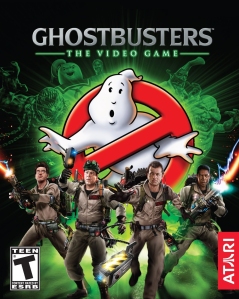When I think about the best animated series that have filled my childhood, many were produced by Sunbow Entertainment. Another thing that all these show had in common? Wonderful voice actors! I have had the privilege of interviewing a man who has voiced many great characters from the eighties and beyond, Mr. Neil Ross!
David Martel: “You were born in London, England, but I have learned in another interview that you have been living in Montréal when you were young! When was that? In which part of the town did you live?”
Neil Ross: “We lived in Westmount from roughly 1950 to 1957.”
DM: “When you were living in Montréal, what were your parents doing?”
NR: “My father was in sales. My mother was a homemaker.”
DM: “Did your parents work in French or did they only use the English Language?”
NR: “My Mother spoke a little French, mostly because she had spent some time in Paris, and she read books in French from time to time. We lived in the Westmount section of Montreal which was primarily English speaking in those days, so I heard little French spoken on a daily basis.”
DM: “Did you learn any French yourself?”
NR: “We had French classes in school, one hour a day as I recall. We left Canada when I was in the seventh grade and I heard no French in Southern California – just Spanish. So, after a few years, the little bit of French I had sadly slipped away.”
DM: “Have you ever visited other areas of the province of Québec?”
NR: “We vacationed at a lake a couple of times but I can’t recall the name. I was just a kid in the back seat. Nobody told me anything.”
DM: “Do you sometimes come back to Montréal? Did you ever visit your old neighbourhood?”
NR: “I’ve never been back.”
DM: “What kind of career were you pursuing prior to becoming a voice actor? What were your dreams?”
NR: “I started out in radio. That was my first dream. I was a radio DJ and production guy (producing pre-recorded commercials and promos). I did that work for 22 years.”
DM: “What got you interested into voice acting? Also, how and where did you get your first gig?”
NR: “As a result of my radio production work I began to become aware of the people I heard voicing the big national television and radio commercials and narrating the documentaries. I had always had a knack for doing character voices and accents so I began to wonder about the folks who voiced animation. I assumed that they were on-camera actors who were picking up a few extra bucks. Eventually I found out that there was a type of performer who just did voice work and that the trade was called Voice-over. It was only happening in New York and Los Angeles in those days. When I finally landed a radio job in L.A. I immediately started going to voice-over classes and looking for an agent. The first VO job I booked through an agent in L.A. was to narrate some kind of sales presentation. The first animation job was at Hanna-Barbera for an episode of Richie Rich . I played a pushy salesman who gets his tie caught in the door.”
DM: “Is there any character or kind of character that you voiced for which you were not entirely comfortable with?”
NR: “I do recall being cast as an effeminate pig in a show called Kissyfur. I didn’t exactly drive to those sessions whistling Zipadee Do Dah. Some roles are a bit more of a ‘stretch’ than others, but work’s work. You do what you have to.”
DM: “On the other hand, is there any particular character or type of character that you would qualify as your favourite?”
NR: “I like any character that is complex, multi faceted and conflicted. Gives one a lot to work with.”
DM: “Among the numerous characters that you have voiced, which ones were good examples? Personally, I’ve always liked G.I.Joe’s Shipwreck who was a very complex character. It was also Script editor Buzz Dixon‘s favourite, so I guess he got a little more time and efforts than other characters.”
NR: “Shipwreck is a prime example of that kind of character. Most of the G. I. Joe characters are all good or all evil. Shipwreck is basically a good guy but he’s not really a team player. He likes to do things his way and it gets him into trouble sometimes. He marches to the beat of his own drum and so he’s a lot of fun to play. Norman Osborn/Green Goblin was pretty conflicted (more like two different characters really).”
DM: “Is there any character that you miss voicing or any show that you miss working on?”
NR: “I miss them all to a greater or lesser degree (maybe not Duane the pig in Kissyfur). Other than Shipwreck I guess I miss Springer in Transformers and Leoric in Visionaries (I wish that show had lasted longer); also miss Norman Osborn/Green Goblin in Spiderman. On the comedy side I loved the bombastic newsman Whitley White in Attack of the Killer Tomatoes. I never got tired of voicing him. Great fun.”
DM: “In the eighties, you have voiced the iconic John Rambo character in the animated series. How was it to voice the principal hero of a whole show?”
NR: “As John Gielgud is alleged to have said: “there are no small parts – only small actors.” Still it feels mighty good to play the lead in a 65 episode series fairly early on in my Voice-over career. I kind of felt like I’d ‘arrived.’”
DM: “Are there any shows that you would have liked to work on, but didn’t get the chance to?”
NR: “Of course, but I was so fortunate to get to do what I did do that I’d be a piker if I complained.”
DM: “You have worked in both television and videogames as a voice actor. What did you prefer? Are there any notable differences?”
NR: “I don’t really have a preference. The biggest difference between animation and games is that games aren’t linear. You don’t work with other actors and you frequently have to do lines that aren’t supported by any specific scene or structure. You’re kind of flying blind. It’s probably the audio equivalent of an on-camera actor working in front of a green screen. They tell him there’s going to be a monster behind him, but he can’t see it.”
DM: “What are you up to these days? Anything that you would like to discuss?”
NR: “A little of this, a little of that. I have a recurring character in the TV version of Kung Fu Panda., I’ve done a number of guest shots on the TV version of Garfield and for the last three years I’ve been the announcer for the AFI Life Achievement Award telecast.”
DM: “What do you do when you don’t work?”
NR: “The only thing I have that might qualify as a hobby is mixed martial arts. I’ve trained in Krav Maga, Kickboxing, Kali and recently something called Warrior Yoga. I’m not a very promising student but I keep showing up. I spend a fair amount of time reading – books, newspapers and the internet. I’d like to do some traveling but I never seem to get around to it.”
DM: “Any projects or objectives for 2013?”
NR: “I’m just working on staying healthy. I’m reaching the age where things start to happen and a number of friends are experiencing serious health issues and you begin to appreciate having good health in a way you never did before. So I watch my weight, watch what I eat and drink, take a lot of vitamins, minerals and other supplements and get a lot of exercise.”
DM: “Thanks a lot again Mr. Ross again for this privilege! Your voice is already well known, but I’m sure that we’ll hear you again for many years.
The current pictures belong to Neil Ross and is used with his permission.





